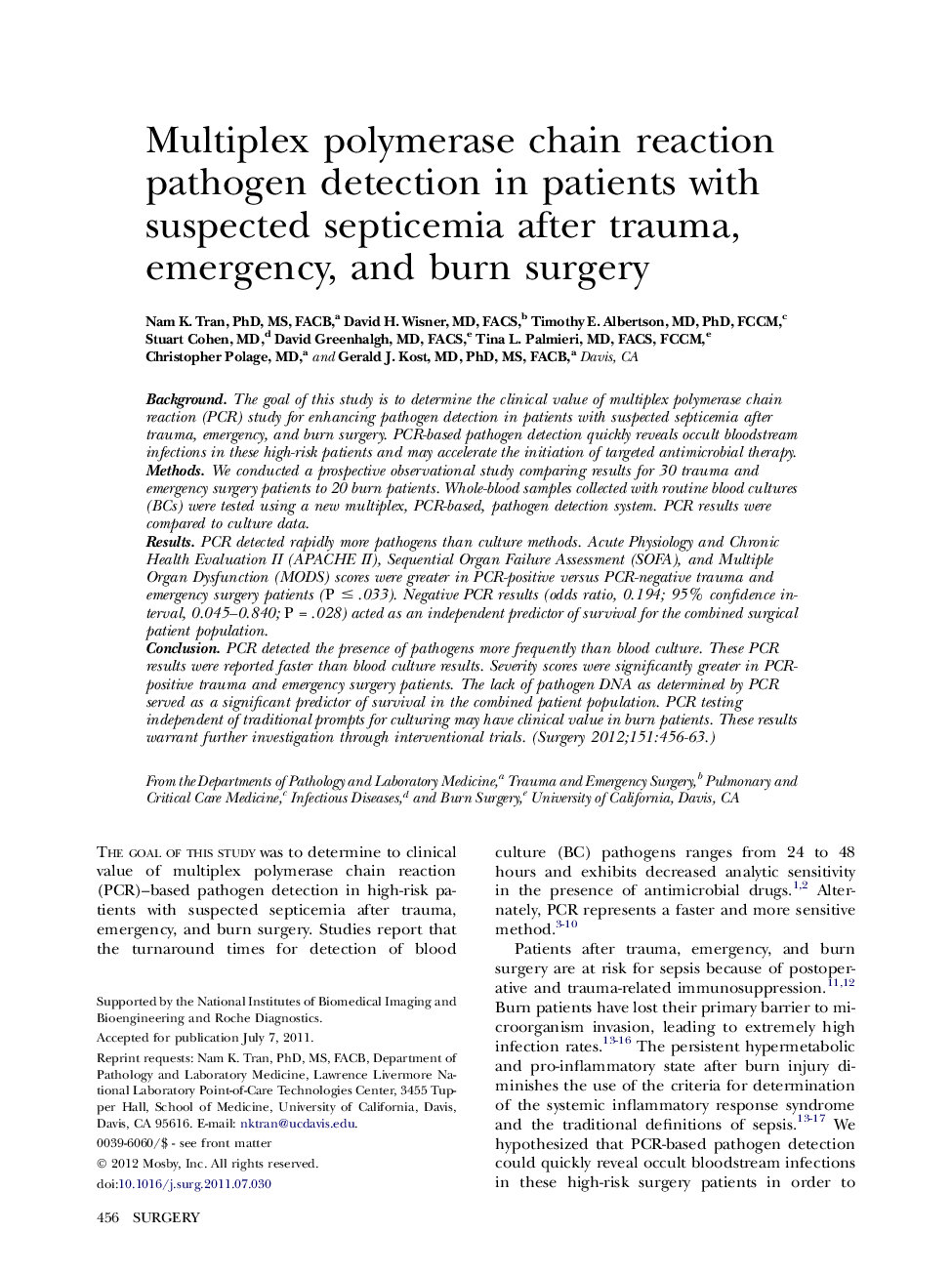| Article ID | Journal | Published Year | Pages | File Type |
|---|---|---|---|---|
| 4307383 | Surgery | 2012 | 8 Pages |
BackgroundThe goal of this study is to determine the clinical value of multiplex polymerase chain reaction (PCR) study for enhancing pathogen detection in patients with suspected septicemia after trauma, emergency, and burn surgery. PCR-based pathogen detection quickly reveals occult bloodstream infections in these high-risk patients and may accelerate the initiation of targeted antimicrobial therapy.MethodsWe conducted a prospective observational study comparing results for 30 trauma and emergency surgery patients to 20 burn patients. Whole-blood samples collected with routine blood cultures (BCs) were tested using a new multiplex, PCR-based, pathogen detection system. PCR results were compared to culture data.ResultsPCR detected rapidly more pathogens than culture methods. Acute Physiology and Chronic Health Evaluation II (APACHE II), Sequential Organ Failure Assessment (SOFA), and Multiple Organ Dysfunction (MODS) scores were greater in PCR-positive versus PCR-negative trauma and emergency surgery patients (P ≤ .033). Negative PCR results (odds ratio, 0.194; 95% confidence interval, 0.045–0.840; P = .028) acted as an independent predictor of survival for the combined surgical patient population.ConclusionPCR detected the presence of pathogens more frequently than blood culture. These PCR results were reported faster than blood culture results. Severity scores were significantly greater in PCR-positive trauma and emergency surgery patients. The lack of pathogen DNA as determined by PCR served as a significant predictor of survival in the combined patient population. PCR testing independent of traditional prompts for culturing may have clinical value in burn patients. These results warrant further investigation through interventional trials.
